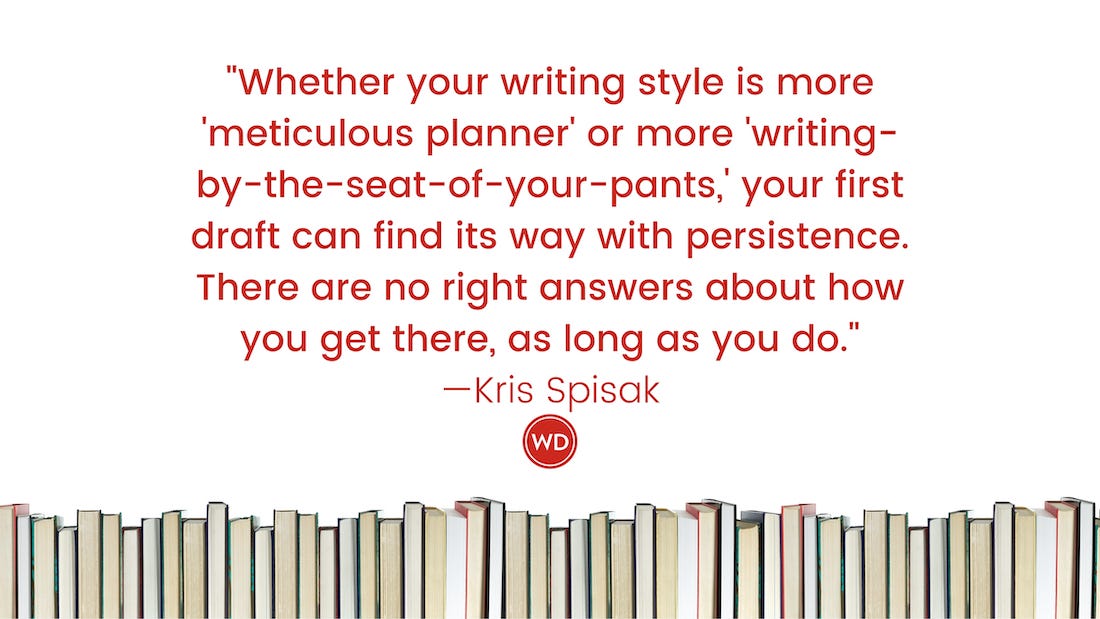One Simple Way to Sharpen Your Pitch
As anyone who’s ever tried to come up with one of those vital one-sentence pitches for their book knows, getting it right can be maddening. Here, courtesy of bestseller Jon…
As anyone who’s ever tried to come up with one of those vital one-sentence pitches for their book knows, getting it right can be maddening. Here, courtesy of bestseller Jon Land, is one particularly sharp strategy to take your elevator pitch to new heights.
ThrillerFest’s AgentFest pitch slam took place yesterday, and literary agents and writers galore packed the Hyatt in Manhattan for the publishing-world version of speed dating. Writers took their best shot at nabbing an agent with their 3-minute pitches … for which you need one of those fewer-than-25-word descriptions of your book—the same ones that are vital when querying outside the pitch slam world.
As anyone who’s ever tried to come up with such a concise sentence knows, it’s not easy—but luckily ThrillerFest equipped its participants with strategies and tricks. Here, courtesy of brilliant bestselling author Jon Land (Strong at the Break), is one particularly effective official tip.
For more, visit thrillerfest.com/craftfest/pitch-tips. And for WD’s comprehensive resource on getting an agent—from listings of literary reps to query advice—check out Guide to Literary Agents (guidetoliteraryagents.com).
--
OK, so a lot of people have been asking me what the new book I’m working on, Blood Strong, is about. Here’s what I tell them:
“Female Texas Ranger Caitlin Strong takes on homegrown terrorists as she races to solve the one mystery that eluded her legendary Ranger father and grandfather.”
BOOM! Short, sweet and to the point!
Now let’s see how it fits the MacDonald Rule. What’s the MacDonald Rule? Well, when asked once by a young writer what a story is, John D. MacDonald replied, “Stuff happens to people you care about.”
I like to apply the MacDonald Rule to all of my pitches and loglines. In other words, even though it’s only a few lines, a pitch should explain who is trying to do what and why.
Remember, the initial pitch is only the bait to hook the agents, make them want to hear more. A good pitch gets them leaning forward and listening, even at the end of the afternoon. A not-so-good pitch, well, they may tune out the rest of what you have to say even if you have a great idea for a book.
What I recommend strongly, and this is something you won’t always hear when it comes to pitching, is to make your pitch character driven in the same way your book will be.
Example:
NOT: “A burning skyscraper threatens the lives of thousands, including a pregnant woman trapped on the top floor.”
INSTEAD: “A former firefighter, fired for insubordination, races to save the lives of thousands of people in a burning skyscraper, including his pregnant wife.”
See what I’m getting at here? Let’s try another.
NOT: ”High-school students turned zombies seek vengeance on the town officials who closed their school for budget reasons.”
INSTEAD: ”A high-school prom queen and the bad boy she secretly loves lead their friends-turned-zombies in a battle to get their school reopened.”
And one more:
NOT: “A man falsely imprisoned on death row will die at dawn if the governor doesn’t pardon him.”
INSTEAD: “An intrepid reporter has only 24 hours to save the innocent man she’s fallen in love with from execution.”
In each case, we know who the hero is and what their quest is. You have not only told the agent what your book is about, you have engaged him or her emotionally in the action. Do that, and your pitch will be a winner.
Jon Land (jonlandbooks.com) is the bestselling author of the Caitlin Strong series.
Don't hurt your chances of getting published by not sending agents what they want. Consider:
Guide To Query Letters
Become a WD VIP and Save 10% on this book:
Get a 1-year pass to WritersMarket.com, a 1-year subscription to Writer's Digest magazine and 10% off all WritersDigestShop.com orders! Click here to join.
Also check out these items from the Writer's Digest's collection:
Writer's Digest Elements Of Writing Fiction: Beginnings, Middles & Ends
Writer's Digest Elements Of Writing Fiction: Scene & Structure
Writer's Digest Elements Of Writing Fiction: Description
Writer's Digest Elements Of Writing Fiction: Characters & Viewpoint
Writer's Digest No More Rejections
Writer's Digest Weekly Planner
Writer's Digest How to Land a Literary Agent (On-Demand Webinar)
Writer's Digest Magazine One-Year Subscription
Writer's Digest 10 Years of Writer's Digest on CD: 2000-2009
Brian A. Klems is the former Senior Online Editor of Writer’s Digest, and author of Oh Boy, You’re Having a Girl (Adams Media/Simon & Schuster). Follow him on Twitter @BrianKlems.









